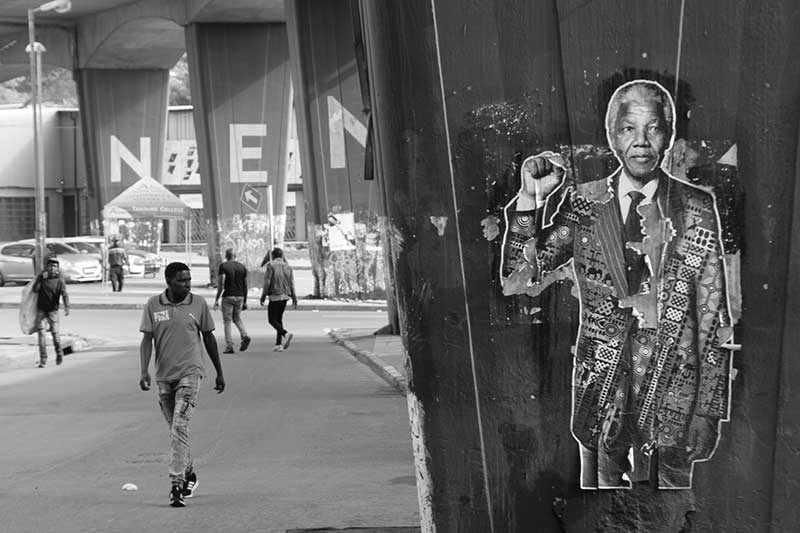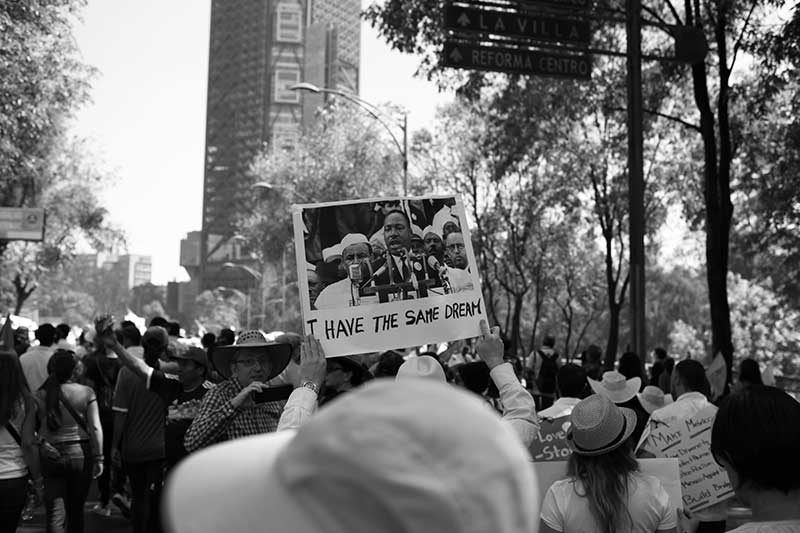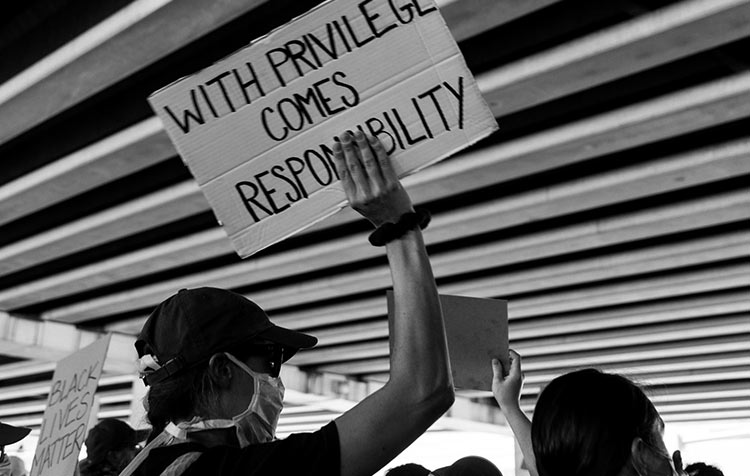You want all human rights at a glance see? Then you've come to the right place! The basis for a peaceful and sustainable coexistence is the protection of the basic needs of each individual. These range from food, health and education to social security. Therefore, in order to safeguard human dignity, on December 10, 1948, in the 183rd plenary session in the Palais de Chaillot in Paris the Universal Declaration of Human Rights proclaimed. Even if the rights contained therein are not enforceable and not binding, they represent an ideal for the orientation of the rights of man and a peaceful coexistence among each other. That is why Human Rights Day is celebrated every year on this day.
In this post, I would like to introduce you to all 30 articles so that you can get a clear picture of our human rights.
Here first already once a Overview for you:
- Freedom, equality, solidarity
- Prohibition of discrimination
- Right to life and liberty
- Prohibition of slavery
- Concealed the torture
- Recognition as a legal entity
- Equality before the law
- Entitlement to legal protection
- Protection from arrest and expulsion
- Right to a fair trial
- Presumption of innocence
- Sphere of freedom of the individual
- Freedom of movement and emigration
- Asylum law
- Right to citizenship
- Marriage, family
- Right to property
- Freedom of thought, conscience, religion
- Freedom of expression and information
- Freedom of assembly and association
- General and equal suffrage
- Right to social security
- Right to work, equal pay
- Right to rest and leisure
- Right to welfare
- Right to education
- Freedom of cultural life
- Social and international order
- Basic duties
- Interpretation rule
All articles from the "Universal Declaration of Human Rights" listed

In the Universal Declaration of Human Rights you will find all the basic views about the rights that we humans are entitled to. The text is one of the most translated texts ever - because it represents the ideal for peaceful coexistence of all people on this planet.
Below you will now find the entire General Assembly Resolution of December 10, 1948, including all 30 articles.₁
PREAMBLE
Since the recognition of the inherent dignity and the equal and inalienable rights of all members of the community of mankind is the foundation of freedom, justice and peace in the world,
da the non-recognition of and contempt for human rights have led to acts of barbarism that fill the conscience of mankind with indignation, and since it has been proclaimed that a world in which people enjoy freedom of speech and belief and freedom from fear and want is man's highest aspiration,
da it is necessary to protect human rights through the rule of law so that man is not forced to resort to rebellion against tyranny and oppression as a last resort,
da it is necessary to promote the development of friendly relations between nations,
da the peoples of the United Nations have reaffirmed in the Charter their belief in fundamental human rights, in the dignity and worth of the human person, and in the equal rights of men and women, and have resolved to promote social progress and better conditions of life in greater freedom,
da Member States are committed to working towards universal respect for and observance of human rights and fundamental freedoms, in cooperation with the United Nations,
da a common understanding of these rights and freedoms is of paramount importance for the full implementation of this commitment,
Announces the General Assembly
This Universal Declaration of Human Rights as the common ideal to be attained by all peoples and nations, so that every individual and all organs of society may keep it constantly in mind and endeavor to promote, by teaching and education, respect for these rights and freedoms, and by progressive national and international measures, their universal and effective recognition and observance by the peoples of the Member States themselves
as well as by the population of the territories under their jurisdiction.
Article 1
All human beings are born free and equal in dignity and rights. They are endowed with reason and conscience and should meet one another in a spirit of solidarity.
Article 2
Everyone is entitled to the rights and freedoms set forth in this Declaration, without distinction of any kind, such as race, color, sex, language, religion, political or other opinion, national or social origin, property, birth or other status.
Furthermore, no distinction shall be made on the basis of the political, legal or international status of the country or territory to which a person belongs, whether that country or territory is independent, under trusteeship, lacks self-government or is otherwise restricted in its sovereignty.
Article 3
Every person has the right to life, liberty and security of person.
Article 4
No one shall be held in slavery or servitude; slavery and the slave trade shall be prohibited in all their forms.
Article 5
No one shall be subjected to torture or cruel, inhuman or degrading treatment or punishment.
Article 6
Every person has the right to be recognized everywhere as having legal capacity.
Article 7
All persons are equal before the law and are entitled without distinction to equal protection of the law. All are entitled to equal protection against any discrimination in violation of this Declaration and against any incitement to such discrimination.
Article 8
Everyone shall have the right to an effective remedy by the competent national tribunals for acts violating fundamental rights granted to him by the Constitution or by law.
Article 9
No one may be arbitrarily arrested, detained or expelled from the country.
Article 10
Everyone shall be entitled in full equality to a fair and public hearing by an independent and impartial tribunal in the determination of his own rights and obligations and in the determination of any criminal charge against him.
Article 11
- Any person accused of a criminal offense shall have the right to be presumed innocent until proven guilty in a public trial in which he has had all the guarantees necessary for his defense, in accordance with the law.
- No one may be convicted of an act or omission which, at the time it was committed, was not punishable under national or international law. Likewise, no heavier penalty may be imposed than the penalty threatened at the time of the commission of the punishable act.
Article 12
No one may be subjected to arbitrary interference with one's private life, one's family, one's home and one's correspondence, or to impairment of one's honor and reputation. Everyone is entitled to legal protection against such interference or impairment.
Article 13
- Every person has the right to move freely within a state and to freely choose the place of residence.
- Every person has the right to leave any country, including his own, and to return to his own country.
Article 14
- Everyone has the right to seek and enjoy asylum from persecution in other countries.
- This right may not be invoked in the case of a prosecution actually brought for crimes of a non-political nature or for acts contrary to the purposes and principles of the United Nations.
Article 15
- Every person has the right to a nationality.
- No one may be arbitrarily deprived of his or her nationality, nor denied the right to change nationality.
Article 16
- People who are capable of marriage have the right to marry and start a family without restriction based on racial attribution, nationality or religion. They have equal rights at marriage, during marriage, and upon dissolution of marriage.
- A marriage may only be entered into if the future spouses freely and unreservedly agree.
- The family is the basic natural unit of society and is entitled to protection by society and the state.
Article 17
- Everyone has the right to hold property, both alone and in community with others.
- No one may be arbitrarily deprived of property.
Article 18
Everyone has the right to freedom of thought, conscience and religion; this right includes freedom to change religion or belief, and freedom, either alone or in community with others and in public or private, to manifest one's religion or belief in teaching, practice, worship and observance.
Article 19
Everyone has the right to freedom of opinion and expression; this right includes freedom to hold opinions without interference and to seek, receive and impart information and ideas through any media regardless of frontiers.
Article 20
- All people have the right to assemble peacefully and to form associations.
- No one may be forced to belong to an association.
Article 21
- Everyone has the right to participate in shaping the public affairs of their own country, either directly or through freely elected representatives.
- Everyone has the right to equal access to public office in their own country.
- The will of the people shall be the basis for the authority of public power; this will must be expressed through regular, undistorted, universal and equal elections by secret ballot or by an equivalent free electoral procedure.
Article 22
Everyone, as a member of society, has the right to social security and the right to enjoy, through national measures and international cooperation and taking into account the organization and resources of each State, the economic, social and cultural rights indispensable for his own dignity and the free development of his personality.
Article 23
- Everyone has the right to work, to free choice of occupation, to just and satisfactory working conditions, and to protection against unemployment.
- Every person, without distinction, has the right to equal pay for equal work.
- Every person who works has the right to fair and satisfactory remuneration that provides him or her and his or her family with a livelihood commensurate with human dignity, supplemented, as appropriate, by other social protections.
- Everyone has the right to form and join trade unions for the protection of their own interests.
Article 24
Everyone has the right to rest and leisure and, in particular, to a reasonable limit on working hours and regular paid leave.
Article 25
- Everyone has the right to a standard of living adequate for the health and well-being of himself and of his family, including food, clothing, housing, medical care and necessary social services, and the right to security in the event of unemployment, sickness, disability or widowhood, old age and other loss of means of subsistence through no fault of his own.
- Mothers and children are entitled to special care and support. All children, both legitimate and illegitimate, enjoy the same social protection.
Article 26
- Every person has the right to education. Education is free, at least primary education and basic education. Elementary education is compulsory. Technical and vocational education must be made universally available, and higher education must be open to all equally according to their abilities.
- Education must be directed to the full development of the human personality and to the strengthening of respect for human rights and fundamental freedoms. It must contribute to understanding, tolerance and friendship among all nations and all groups, regardless of origin and religion, and be conducive to the activities of the United Nations for the maintenance of peace.
- Parents have a primary right to choose the type of education their children receive.
Article 27
- Everyone has the right to participate freely in the cultural life of the community, to enjoy the arts, and to share in scientific progress and its achievements.
- All people have the right to protection of the intellectual and material interests that accrue to them as authors of works of science, literature or art.
Article 28
Everyone is entitled to a social and international order in which the rights and freedoms proclaimed in this Declaration can be fully realized.
Article 29
- Every person has duties towards the community, in which alone the free and full development of one's own personality is possible.
- In the exercise of his own rights and freedoms, every person shall be subject only to such limitations as are prescribed by law solely for the purpose of securing recognition of and respect for the rights and freedoms of others and of meeting the just requirements of morality, public order and the general welfare in a democratic society.
- These rights and freedoms shall in no case be exercised contrary to the purposes and principles of the United Nations.
Article 30
Nothing in this Declaration shall be construed as conferring on any State, group or person any right to engage in any activity or to do any act aimed at the elimination of the rights and freedoms set forth in this Declaration.
All human rights at a glance for peaceful coexistence

Environmental protection and human rights are closely linked. Because the biggest Environmental problems of our time - From climate change, about the air pollution until the Water shortage - end up threatening the rights of everyone in the world.
Like to use these further articlesYou can use this opportunity in your everyday life, either incidentally or actively, to work for human dignity and the protection of our planet:
- Stopping world hunger - What everyone can do
- Veganism and human rights
- Minimize air pollution - tips for everyday life
I hope this post was helpful to you! Feel free to share it with others. And if you have any questions or suggestions, feel free to leave me a comment below this post.
Stay human,

PS.: Look you with pleasure still further in the Sustainability Blog from CareElite. Learn for example, what you can do every day against species extinction.
₁ United Nations: General Assembly December 10, 1948, available at https://t1p.de/f34p. [29.11.2020].






